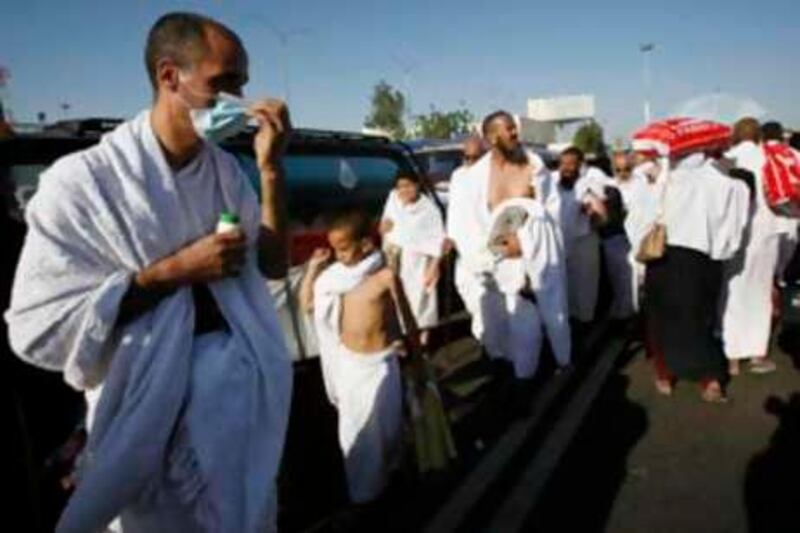A severe shortage of hotel rooms in Mecca has led operators to increase rates by as much as 25 per cent during haj, forcing many pilgrims to cancel their travel plans because the cost is too high. The demolition of about 1,000 hotel and serviced apartments earlier this year to make way for the expansion of the Mecca Grand Mosque has caused an acute shortage of rooms for pilgrims during the haj season. "It's true; every year the prices of hotels in Mecca during haj increases and I believe this year it's a 20 to 25 [per cent] rise in rates," said an official from the Ministry of Hajj in Saudi Arabia. "We are suffering from a shortage of rooms here; that's why we have a little bit more control over demand," said Mohammed el Amin, a sales representative at the Makkah Hilton and Towers. This year, the hotel is offering haj packages from 61,000 Saudi riyals (Dh59,900) for a 25-day stay, compared with 47,000 riyals for the same package last year. In the US, where unemployment has hit its highest point in 15 years, Muslims are finding the rates unaffordable. "My mother and I were supposed to go on haj this year. In the end, I had to stay back because of the high cost," said Huda Jawad, a student in Dearborn, Michigan, the US city with the largest Arab population. Ms Jawad said she knew many fellow Muslims in Dearborn who shared her frustrations. "It's a pillar of our faith and a dream for so many to perform the haj. It's really sad to see so many people who want to go and are prevented due to the financial hardship." Tour operators in the US and Canada are also cancelling their haj trips for the first time. "It was too expensive, so we cancelled this year," said Mahmud Habib, a tour operator for the Toronto-based Hajj Assistance Committee of North America, a five-star caravan that has taken pilgrims to Mecca since 1983. Mr Habib said he would instead take groups of pilgrims to other religious sites in the Middle East. However, the Saudi government does not expect the number of visitors to drop this year. "Even though the prices are higher, I think that people will still want to come and perform religious duty. This type of tourism is very unlike leisure, where one can afford to cut down," said the official from the Ministry of Hajj. Up to two million people visit Mecca every year to do haj, one of the five pillars of Islam that is mandatory for "financially able" Muslims to perform at least once in a lifetime. Religious tourism is the second-largest sector in Saudi Arabia, distantly trailing oil and gas. Revenue from the industry contributes an average of $1.8bn (Dh6.6bn) a year to the economy, according to the kingdom's Supreme Commission for Tourism. However, until the government releases official figures after the end of the haj season, it will be difficult to predict to what extent the global credit crunch had on the industry, said Ibrahim Hooper, the national communications director for the Council on American-Islamic Relations, a Washington DC-based advocacy and civil rights organisation. "But I would not be surprised if fewer people are going in the current economic climate," Mr Hooper said. "People save up their whole lives to go on the haj. Of course, we do not want to see people's life savings and investments be jeopardised by this crisis. We would hope that there would be a range of facilities established for people of limited incomes." Statistics compiled by Jones Lang Lasalle, a hotel consultancy, showed Saudi Arabia was expected to have about 130,000 rooms by 2010, up from 118,000 last year. "As the number of rooms increases, this will help the sector grow even more and ease the problem of the supply shortage - that's the main cause of the increase in room rates that we are seeing right now," said a sales officer at Al Tayyar Travel, one of Saudi Arabia's largest tour operators. abokhari@thenational.ae abakr@thenational.ae
Spiralling hotel prices discourage haj pilgrims
A severe shortage of hotel rooms in Mecca has led operators to increase rates by as much as 25 per cent during haj.

Editor's picks
More from the national





